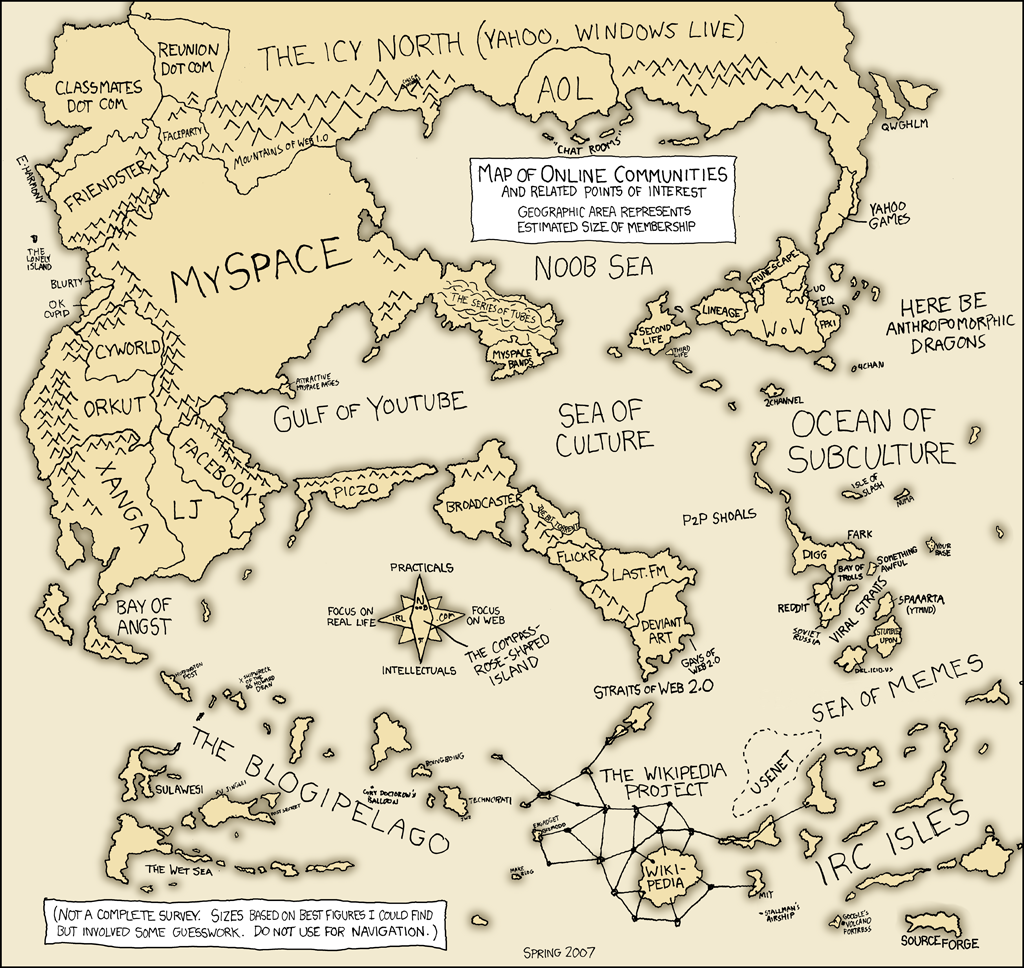As Benedict Anderson posits in his book, language provided the foundation of nationalism both in Europe and the colonial world. Today, computer coding languages and the internet have enabled a new set of of imagined communities based not on English, or French, or Bahasa, but on html, javascript, perl and the like. These coding languages, much like spoken languages, are inclusive; as long as one invests sufficient energy into learning the code, access is granted to the individual. However, coding takes nationalism one step further. For the first time, the individual envisions himself not only as part of a political entity, or a racial group, or a geographical area; instead, he sees himself as part of and participant in the World Wide Web. Even on the individual level, not only is the individual able to belong, he is also able to modify and change this newly imagined community. Thus, while the internet may be a massive sea of anonymity, it is also an opportunity for the regular person, provided he master the requisite tools, to achieve fame.
Traditional "imagined communities", including the nation, are superimposed on the World Wide Web, and subsequently, on the coding languages that created this space. Simultaneously, code creates new imagined communities while preserving and cementing older ones. Does code aid nationalism, or is nationalism waning in this internet age, as people are able to create worldwide networks based on anything and everything? When Anderson wrote Imagined Communities, Yugoslavia was intact, East Timor was still part of Indonesia, the Soviet Union was still in existence and South Ossetia had not yet declared independence from Georgia. While in the early 1990s, the internet did not have the same capabilities as it does now, the fragmenting of former nations does call into question the direction in which the nation is headed. How do the new languages of the interwebs come into play? Is the current equivalent of print capitalism virtual capitalism?
Jeanine
Jeanine

No comments:
Post a Comment